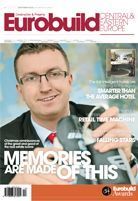A new stage in the evolution of hospitality is taking place: the receptionist-free, fully-automated ‘intelligent hotel’. Is this the shape of things to come – or is the traditional format with room service and porters here to stay?Nathan NorthNorwegian company Genfer is to openthe first ‘intelligent hotel’ in the CEE region: The Puro Hotel Wrocław. This state-of-the-art facility is scheduled to welcome its first guests as soon as February 2011, and according to the company it will be followed by eight more intelligent hotels located in major Polish cities by 2015. However, the welcome awaiting guests in intelligent hotels might be one that is unfamiliar to people living in this part of the world. It will not involve porters offering to carry your luggage, or your keys being handed to you by receptionists. Upon entering you will be greeted by a touch screen monitor displaying options for the various types of stay. If you haven’t already made an online reservation, this can




























































